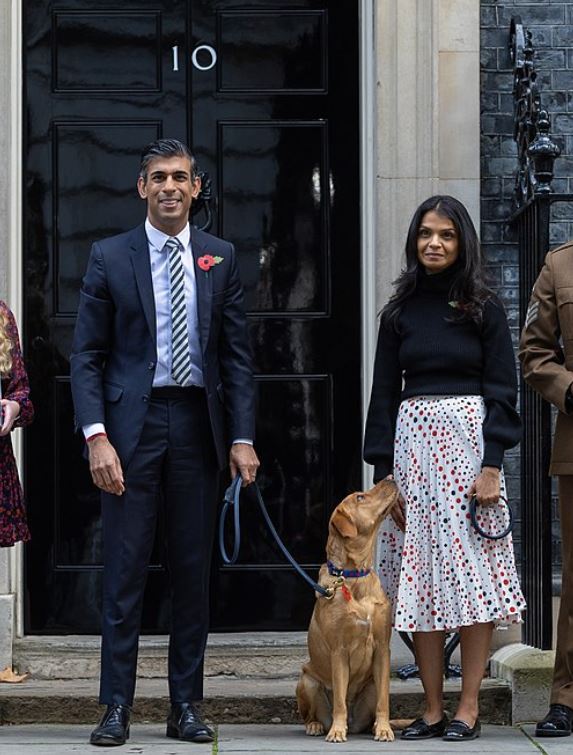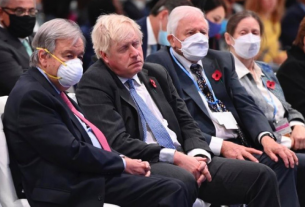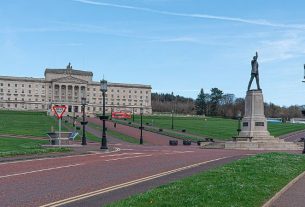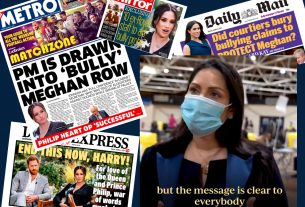Rishi Sunak and his wife’s considerable finances are under renewed scrutiny after fresh revelations.
Sir Keir Starmer said Sunak has “questions to answer” following another report about his wife Akshata Murty’s investments and apparent government support to businesses she has interests in.
The Sunday Times reports that education start-up Study Hall – in which Murty has shares – got £350,000 in taxpayer money in the form of a UK grant.
Sunak – the richest PM in British history – is already under investigation over his wife’s shareholding in another company that has benefitted from his government’s policy.
Commenting on the latest revelation, Starmer said: “I think there are questions to answer in relation to this, there seems to be an emerging pattern of behaviour here, so I think the sooner those questions are answered the better.”
All MPs are required to put on the public register any financial interests that could potentially influence their decision making. When Sunak was extensively quizzed by the Commons liaison committee about his government’s childcare policies the prime minister failed to declare his wife’s interests, specifically her shareholding in Koru Kids. That is a childcare agency set to be boosted by Sunak’s policy – announced in March’s budget – to try and fix Britain’s failing childcare system by financially incentivising people to become childminders.
“All my disclosures are declared in the normal way,” Sunak told the committee. Except it turns out they aren’t because a few weeks after his answer, parliament’s ethics watchdog launched its investigation into the PM. And just last week the standards commissioner leading the probe into Sunak announced the investigation is being extended to look into whether the PM breached paragraph 13 of the code of conduct over his failure to declare his wife’s interest.
In Sunak’s defence, his billionaire wife – the daughter of one of India’s richest men – seems to have so many investments and shareholdings in so many companies – under the Catamaran Ventures UK Ltd company founded by Sunak and his wife in 2013 – that may be he just can’t keep track of all of them.
Alternatively, Sunak learned from his predecessor-bar-one, in particular Boris Johnson’s contempt for rules and entitled belief that rules and indeed laws do not apply to people like him, merely the oiks and plebs who don’t have the same connections or financial largesse to get away with it.
Sunak set up a blind trust to oversee his own substantial investments when he joined the Treasury, first as chief secretary before quickly replacing Sajid Javid who stepped down just before the pandemic. A blind trust is used to avoid any potential conflict of interest, given a trustee is entrusted to look after the investments without needing to consult the owner of the trust.
Consequently, when someone like Sunak climbs the greasy poll the electorate is supposed to have blind trust in them and their motives for pursuing and implementing policies.
Remember Murty enjoyed nom-dom status for tax purposes which meant that for £30,000 a year she saved paying more than £20 million in tax to the UK. When it looked like this might stop Sunak taking over at Downing Street, his wife announced she would pay UK taxes.
In his first speech as PM, a little over six months ago, Sunak promised his government will have “integrity, professionalism and accountability at every level”.
“Trust is earned,” he proclaimed, “And I will earn yours.”
How much his wife has earned since Sunak took over in Downing Street 26-or-so weeks ago, , never mind his own blind trust, is another question deserving an answer.
While it is worth emphasising that all media reports on Sunak’s wife’s finances state “there is no suggestion of wrongdoing”, it is interesting to compare Carol Vorderman’s approach. The TV personality and fierce critic of the Tories is unequivocal with her gloves off assessment of the whole debacle. “The rightful unravelling of Sunak’s family’s financial tax dodging & gov contracts,” tweeted Vorderman. “Also his wife’s many assoctd companies many of which seem to go bust owing HMRC [money]”.




